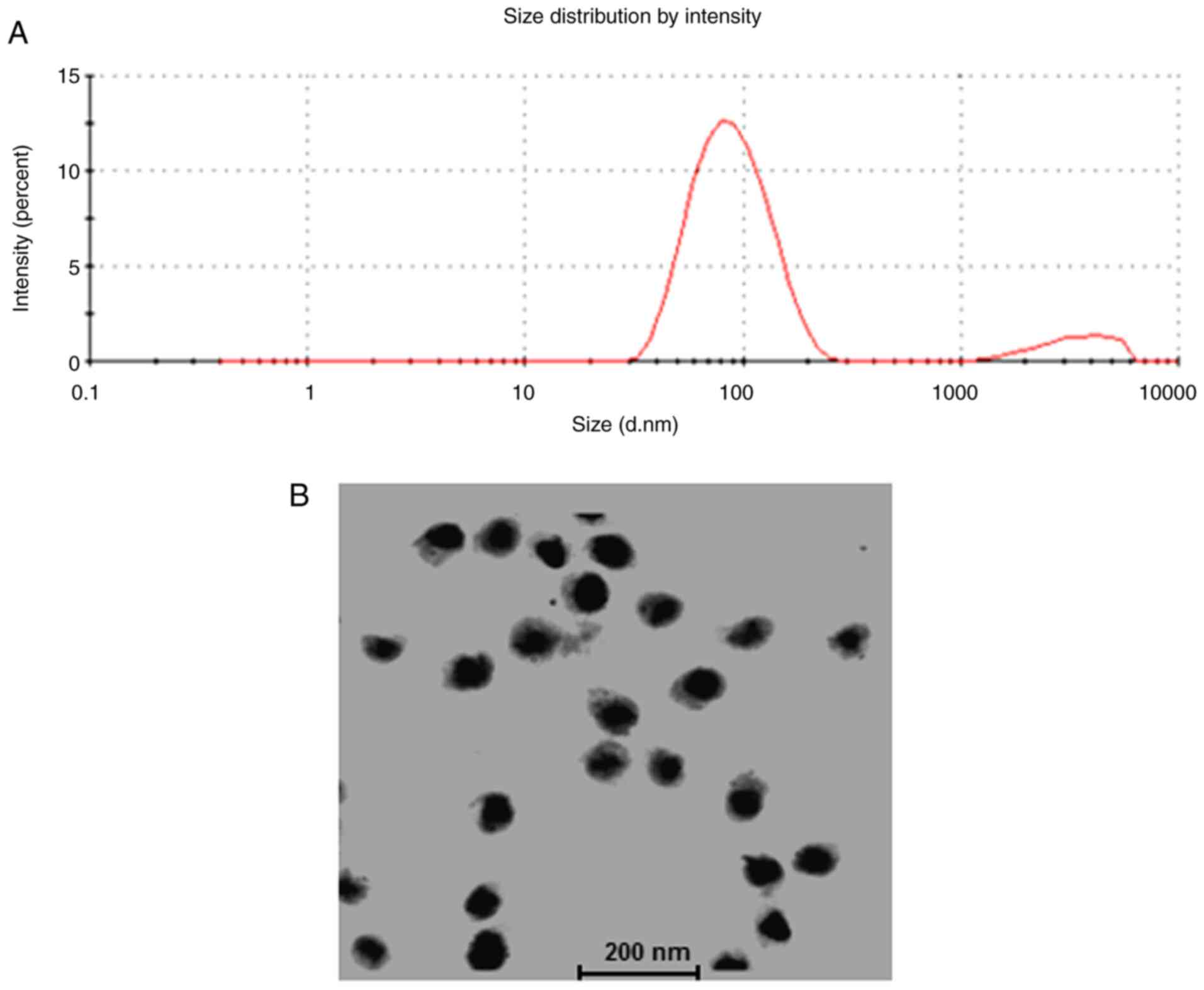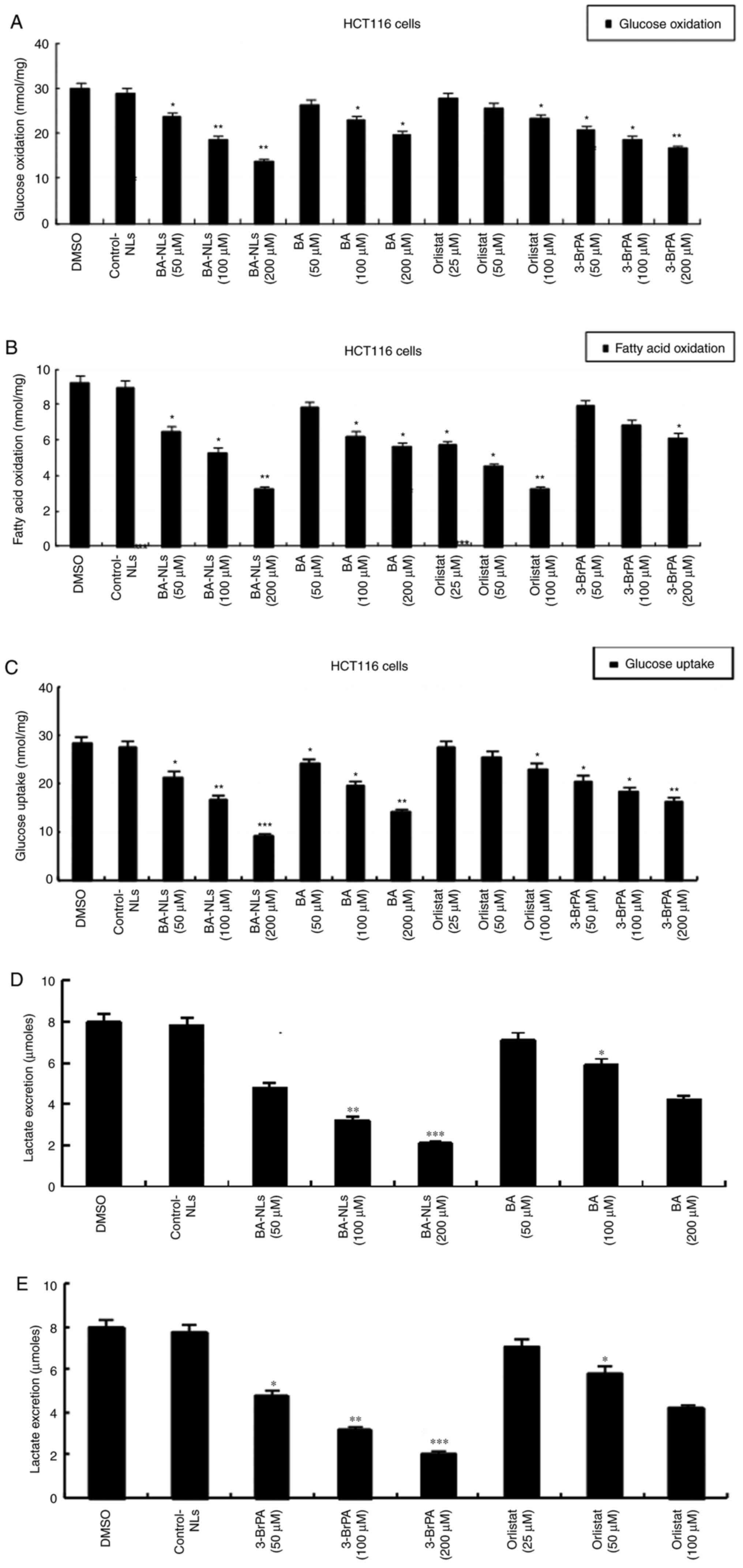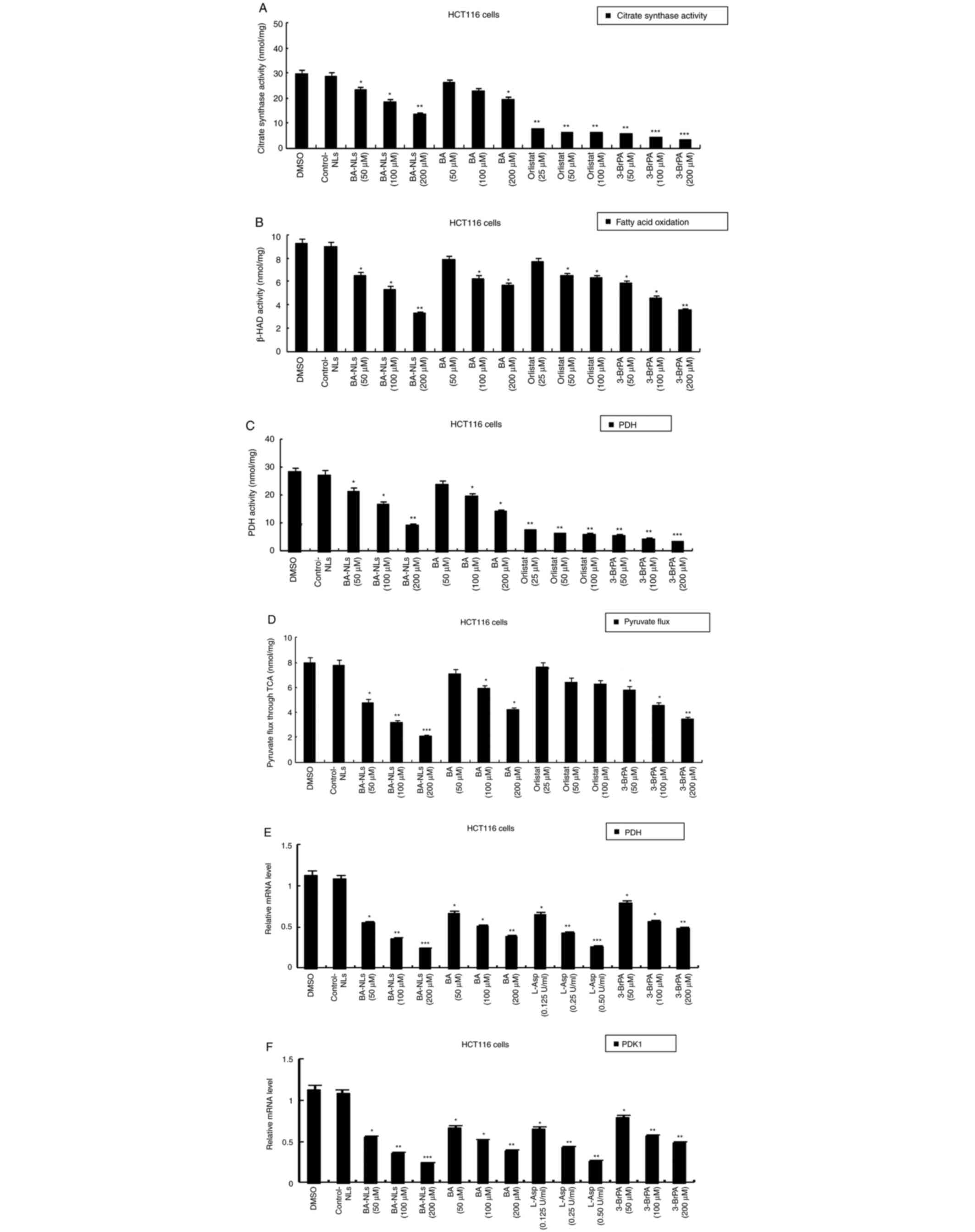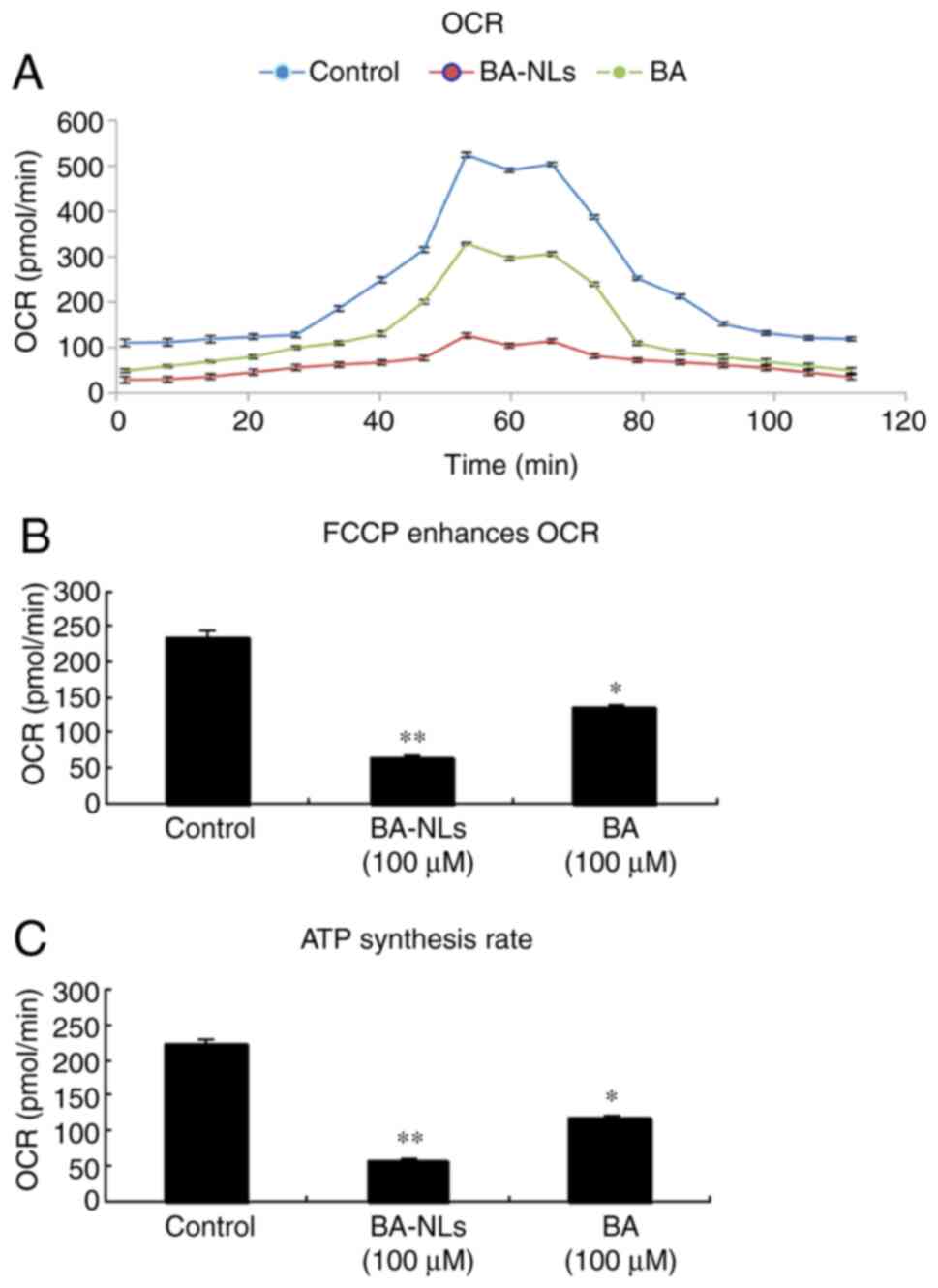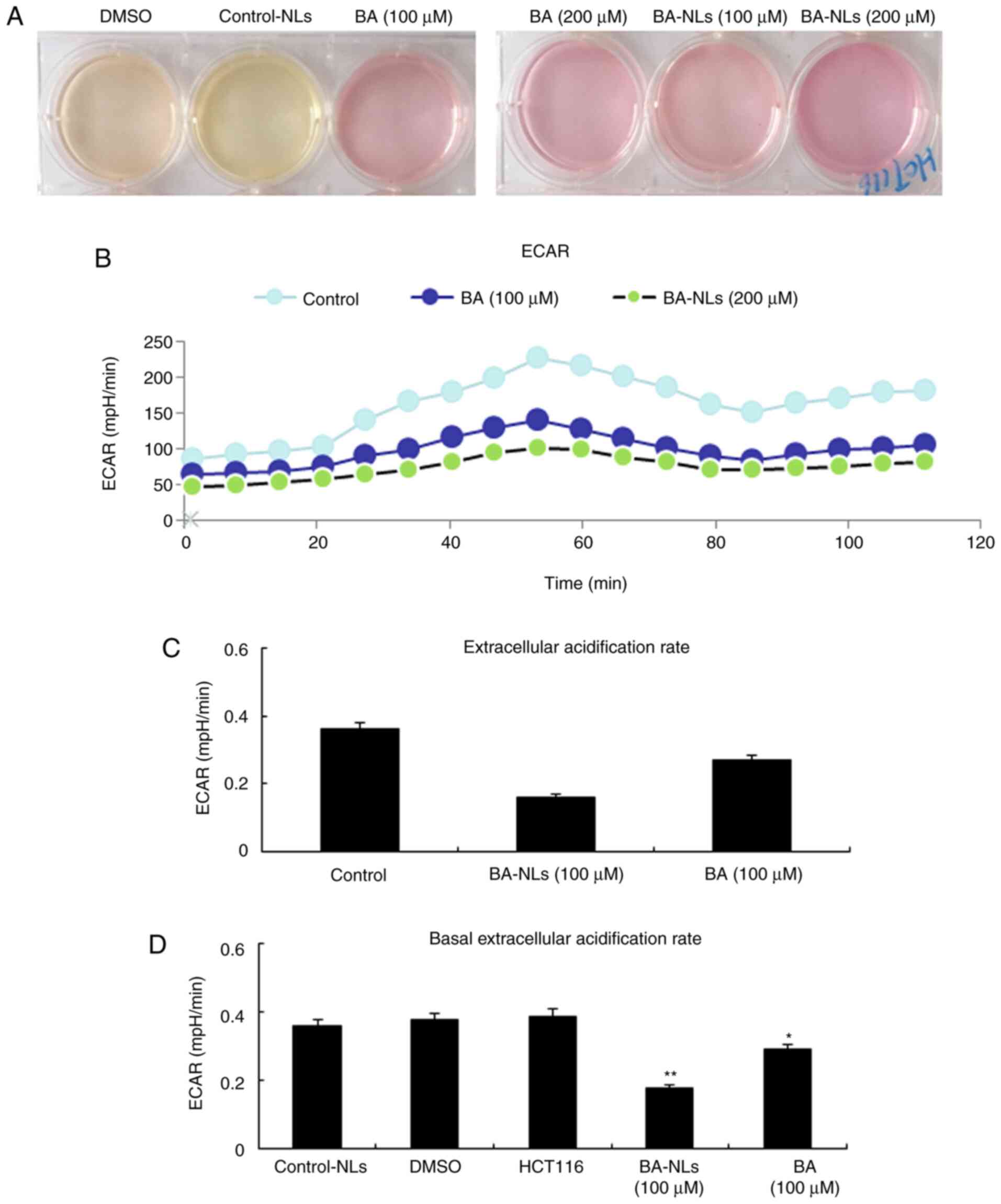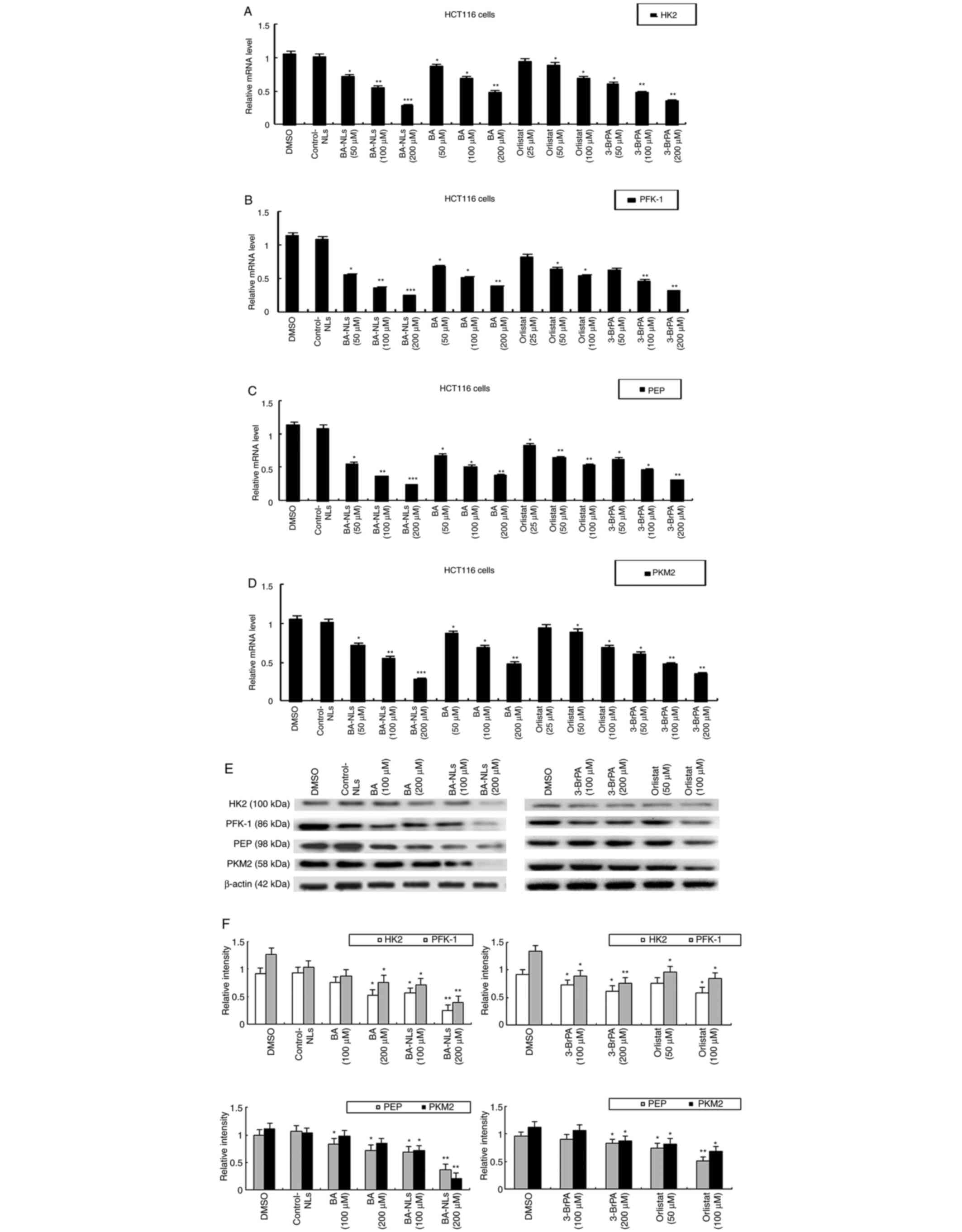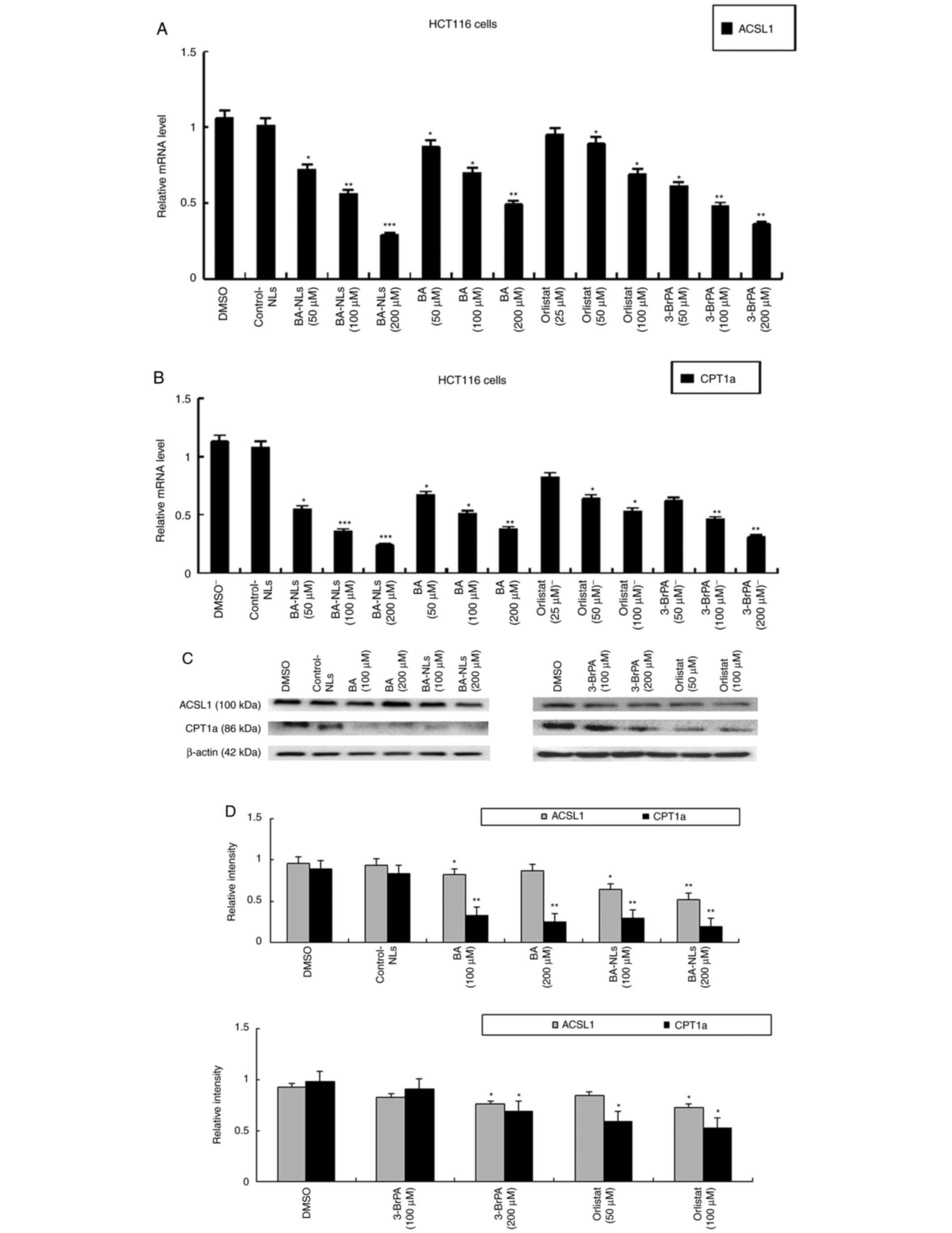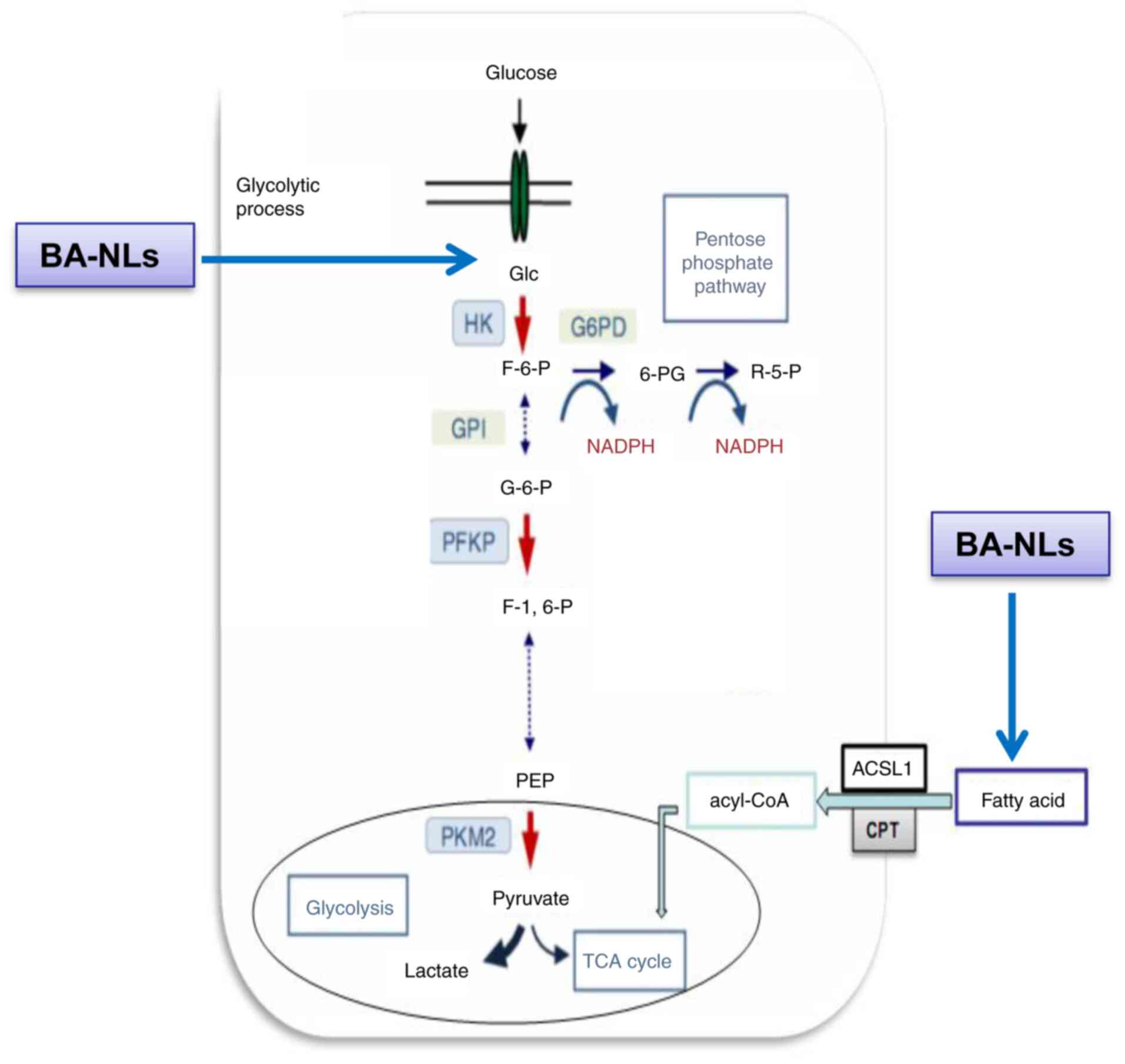|
1
|
Song LL and Li YM: Current noninvasive
tests for colorectal cancer screening: An overview of colorectal
cancer screening tests. World J Gastrointest Oncol. 8:793–800.
2016. View Article : Google Scholar : PubMed/NCBI
|
|
2
|
Siegel R, Naishadham D and Jemal A: Cancer
statistics, 2013. CA Cancer J Clin. 63:11–30. 2013. View Article : Google Scholar : PubMed/NCBI
|
|
3
|
Anemone A, Consolino L, Conti L, Reineri
F, Cavallo F, Aime S and Longo DL: In vivo evaluation of
tumour acidosis for assessing the early metabolic response and
onset of resistance to dichloroacetate by using magnetic resonance
pH imaging. Int J Oncol. 51:498–506. 2017. View Article : Google Scholar : PubMed/NCBI
|
|
4
|
Zhao M, Liu Q, Gong Y, Xu X, Zhang C, Liu
X, Zhang C, Guo H, Zhang X, Gong Y and Shao C: 2017: GSH-dependent
antioxidant defense contributes to the acclimation of colon cancer
cells to acidic microenvironment. Cell Cycle. 15:1125–1133. 2016.
View Article : Google Scholar : PubMed/NCBI
|
|
5
|
Nam SO, Yotsumoto F, Miyata K, Fukagawa S,
Yamada H, Kuroki M and Miyamoto S: Warburg effect regulated by
amphiregulin in the development of colorectal cancer. Cancer Med.
4:575–587. 2015. View
Article : Google Scholar : PubMed/NCBI
|
|
6
|
Yan G, Li L, Bo Z and Li Y: Lipidome in
colorectal cancer. Oncotarget. 7:33429–33439. 2016. View Article : Google Scholar : PubMed/NCBI
|
|
7
|
Vargas T, Moreno-Rubio J, Herranz J, Cejas
P, Molina S, Mendiola M, Burgos E, Custodio AB, De Miguel,
Martín-Hernández R, et al: 3′UTR polymorphism in ACSL1 gene
correlates with expression levels and poor clinical outcome in
colon cancer patients. PLoS One. 11:e01684232016. View Article : Google Scholar : PubMed/NCBI
|
|
8
|
Sánchez-Martínez R, Cruz-Gil S,
García-Álvarez MS, Reglero G and Ramírez de Molina A: Complementary
ACSL isoforms contribute to a non-Warburg advantageous energetic
status characterizing invasive colon cancer cells. Sci Rep.
7:111432017. View Article : Google Scholar : PubMed/NCBI
|
|
9
|
Zammit VA: Carnitine palmitoyltransferase
1: Central to cell function. IUBMB Life. 60:347–354. 2008.
View Article : Google Scholar : PubMed/NCBI
|
|
10
|
Taymaz-Nikerel H, De MM, Baart GJ,
Maertens J, Foulquié-Moreno MR, Charlier D, Heijnen JJ and van
Gulik WM: Comparative fluxome and metabolome analysis for
overproduction of succinate in Escherichia coli. Biotechnol
Bioeng. 113:817–829. 2016. View Article : Google Scholar : PubMed/NCBI
|
|
11
|
Wright HJ, Hou J, Xu B, Cortez M, Potma
EO, Tromberg BJ and Razorenova OV: CDCP1 drives triple-negative
breast cancer metastasis through reduction of lipid-droplet
abundance and stimulation of fatty acid oxidation. Proc Natl Acad
Sci USA. 114:E6556–E6565. 2017. View Article : Google Scholar : PubMed/NCBI
|
|
12
|
Kim NH, Cha YH, Lee J, Lee SH, Yang JH,
Yun JS, Cho ES, Zhang X, Nam M, Kim N, et al: Snail reprograms
glucose metabolism by repressing phosphofructokinase PFKP allowing
cancer cell survival under metabolic stress. Nat Commun.
8:143742017. View Article : Google Scholar : PubMed/NCBI
|
|
13
|
Mullauer FB, Kessler JH and Medema JP:
Betulinic acid, a natural compound with potent anticancer effects.
Anticancer Drugs. 21:215–227. 2010. View Article : Google Scholar : PubMed/NCBI
|
|
14
|
Jonnalagadda SC, Corsello MA and Sleet CE:
Betulin-betulinic acid natural product based analogs as anticancer
agents. Anticancer Agents Med Chem. 13:1477–1499. 2013. View Article : Google Scholar : PubMed/NCBI
|
|
15
|
Gheorgheosu D, Duicu O, Dehelean C, Soica
C and Muntean D: Betulinic acid as a potent and complex antitumor
phytochemical: A minireview. Anticancer Agents Med Chem.
14:936–945. 2014. View Article : Google Scholar : PubMed/NCBI
|
|
16
|
Gang W, Jie WJ, Ping ZL, Ming du S, Ying
LJ, Lei W and Fang Y: Liposomal quercetin: Evaluating drug delivery
in vitro and biodistribution in vivo. Expert Opin Drug Deliv.
9:599–613. 2012. View Article : Google Scholar : PubMed/NCBI
|
|
17
|
Kusumanchi P, Zhang Y, Jani MB, Jayaram
NH, Khan RA, Tang Y, Antony AC and Jayaram HN: Nicotinamide
mononucleotide adenylyltransferase2 overexpression enhances
colorectal cancer cell-kill by Tiazofurin. Cancer Gene Ther.
20:403–412. 2013. View Article : Google Scholar : PubMed/NCBI
|
|
18
|
Irshad Z, Dimitri F, Christian M and
Zammit VA: Diacylglycerol acyltransferase 2 links glucose
utilization to fatty acid oxidation in the brown adipocytes. J
Lipid Res. 58:15–30. 2017. View Article : Google Scholar : PubMed/NCBI
|
|
19
|
Koutsari C, Ali AH, Mundi MS and Jensen
MD: Measuring plasma fatty acid oxidation with intravenous bolus
injection of 3H- and 14C-fatty acid. J Lipid Res. 54:254–264. 2013.
View Article : Google Scholar : PubMed/NCBI
|
|
20
|
Heilbronn LK, Civitarese AE, Bogacka I,
Smith SR, Hulver M and Ravussin E: Glucose toleranceand skeletal
muscle gene expression in response to alternate day fasting. Obes
Res. 13:574–581. 2005. View Article : Google Scholar : PubMed/NCBI
|
|
21
|
Li LO, Grevengoed TJ, Paul DS, Ilkayeva O,
Koves TR, Pascual F, Newgard CB, Muoio DM and Coleman RA:
Compartmentalized Acyl-CoA metabolism in skeletal muscle regulates
systemic glucose homeostasis. Diabetes. 64:23–35. 2015. View Article : Google Scholar : PubMed/NCBI
|
|
22
|
Gerencser AA, Neilson A, Choi SW, Edman U,
Yadava N, Oh RJ, Ferrick DA, Nicholls DG and Brand MD: Quantitative
microplate-based respirometry with correction for oxygen diffusion.
Anal Chem. 81:6868–6878. 2009. View Article : Google Scholar : PubMed/NCBI
|
|
23
|
Cardaci S, Desideri E and Ciriolo MR:
Targeting aerobic glycolysis: 3-bromopyruvate as a promising
anticancer drug. J Bioenerg Biomembr. 44:17–29. 2012. View Article : Google Scholar : PubMed/NCBI
|
|
24
|
Pereira da Silva AP, El-Bacha T, Kyaw N,
dos Santos RS, da-Silva WS, Almeida FC, Da Poian AT and Galina A:
Inhibition of energy-producing pathways of HepG2 cells by
3-bromopyruvate. Biochem J. 417:717–726. 2009. View Article : Google Scholar : PubMed/NCBI
|
|
25
|
Chen Z, Zhang H, Lu W and Huang P: Role of
mitochondria-associated hexokinase II in cancer cell death induced
by 3-bromopyruvate. Biochim Biophys Acta. 1787:553–560. 2009.
View Article : Google Scholar : PubMed/NCBI
|
|
26
|
Kim W, Yoon JH, Jeong JM, Cheon GJ, Lee TS
and Yang JI: Apoptosis-inducing antitumor efficacy of hexokinase II
inhibitor in hepatocellular carcinoma. Mol Cancer Ther.
6:2554–2562. 2007. View Article : Google Scholar : PubMed/NCBI
|
|
27
|
Xu T, Pang Q, Wang Y and Yan X: Betulinic
acid induces apoptosis by regulating PI3K/Akt signaling and
mitochondrial pathways in human cervical cancer cells. Int J Mol
Med. 40:1669–1678. 2017.PubMed/NCBI
|
|
28
|
Huo L, Bai X, Wang Y and Wang M: Betulinic
acid derivative B10 inhibits glioma cell proliferation through
suppression of SIRT1, acetylation of FOXO3a and upregulation of
Bim/PUMA. Biomed Pharmacother. 92:347–355. 2017. View Article : Google Scholar : PubMed/NCBI
|
|
29
|
Dutta D, Paul B, Mukherjee B, Mondal L,
Sen S, Chowdhury C and Debnath MC: Nanoencapsulated betulinic acid
analogue distinctively improves colorectal carcinoma in vitro and
in vivo. Sci Rep. 9:115062019. View Article : Google Scholar : PubMed/NCBI
|
|
30
|
Hsu PP and Sabatini DM: Cancer cell
metabolism: Warburg and beyond. Cell. 134:703–707. 2008. View Article : Google Scholar : PubMed/NCBI
|
|
31
|
Wang G, Wang YZ, Yu Y, Wang JJ, Yin PH and
Xu K: Triterpenoids extracted from rhus chinensis mill act against
colorectal cancer by inhibiting enzymes in glycolysis and
glutaminolysis: Network analysis and experimental validation. Nutr
Cancer. 72:293–319. 2020. View Article : Google Scholar : PubMed/NCBI
|
|
32
|
Wang G, Wang YZ, Yu Y and Wang JJ:
Inhibitory ASIC2-mediated calcineurin/ NFAT against colorectal
cancer by triterpenoids extracted from Rhus chinensis Mill. J
Ethnopharmacol. 235:255–267. 2019. View Article : Google Scholar : PubMed/NCBI
|
|
33
|
Mitov MI, Harris JW, Alstott MC, Zaytseva
YY, Evers BM and Butterfield DA: Temperature induces significant
changes in both glycolytic reserve and mitochondrial spare
respiratory capacity in colorectal cancer cell lines. Exp Cell Res.
354:112–121. 2017. View Article : Google Scholar : PubMed/NCBI
|
|
34
|
Snaebjornsson MT and Schulze A:
Non-canonical functions of enzymes facilitate cross-talk between
cell metabolic and regulatory pathways. Exp Mol Med. 50:342018.
View Article : Google Scholar : PubMed/NCBI
|
|
35
|
Pakiet A, Kobiela J, Stepnowski P,
Sledzinski T and Mika A: Changes in lipids composition and
metabolism in colorectal cancer: A review. Lipids Health Dis.
18:292019. View Article : Google Scholar : PubMed/NCBI
|
|
36
|
Zaytseva YY, Harris JW, Mitov MI, Kim JT,
Butterfield DA, Lee EY, Weiss HL, Gao T and Evers BM: Increased
expression of fatty acid synthase provides a survival advantage to
colorectal cancer cells via upregulation of cellular respiration.
Oncotarget. 6:18891–18904. 2015. View Article : Google Scholar : PubMed/NCBI
|
|
37
|
Lai MC, Chang CM and Sun HS: Hypoxia
induces autophagy through translational Up-regulation of lysosomal
proteins in human colon cancer cells. PLoS One. 11:e01536272016.
View Article : Google Scholar : PubMed/NCBI
|
|
38
|
Wang G, Wang JJ, Yin PH, Xu K, Wang YZ,
Shi F, Gao J and Fu XL: Strategies to target energy metabolism in
consensus molecular subtype 3 along with Kirsten rat sarcoma viral
oncogene homolog mutations for colorectal cancer therapy. J Cell
Physiol. 234:5601–5612. 2019. View Article : Google Scholar : PubMed/NCBI
|
|
39
|
Enoch HG, Catalá A and Strittmatter P:
Mechanism of rat liver microsomal stearyl-CoA desaturase. Studies
of the substrate specificity, enzyme-substrate interactions, and
the function of lipid. J Biol Chem. 251:5095–5103. 1976.PubMed/NCBI
|
|
40
|
Patra SK: Dissecting lipid raft
facilitated cell signaling pathways in cancer. Biochim Biophys
Acta. 1785:182–206. 2008.PubMed/NCBI
|
|
41
|
Cruz-Gil S, Sanchez-Martinez R, Gomez de
Cedron M, Martin-Hernandez R, Vargas T, Molina S, Herranz J,
Davalos A, Reglero G and Ramirez de Molina A: Targeting the
metabolic axis ACSL/SCD in colorectal cancer progression by
therapeutic miRNAs: miR-19b-1 role. J Lipid Res. 59:14–24. 2018.
View Article : Google Scholar : PubMed/NCBI
|
|
42
|
Bezaire V, Bruce CR, Heigenhauser GJ,
Tandon NN, Glatz JF, Luiken JJ, Bonen A and Spriet LL:
Identification of fatty acid translocase on human skeletal muscle
mitochondrial membranes: Essential role in fatty acid oxidation. Am
J Physiol Endocrinol Metab. 290:E509–E515. 2006. View Article : Google Scholar : PubMed/NCBI
|
|
43
|
Aguirre-Portolés C, Fernández LP and
Ramírez de Molina A: Precision nutrition for targeting lipid
metabolism in colorectal cancer. Nutrients. 9:10762017. View Article : Google Scholar
|
|
44
|
Gómez de Cedrón M and Ramírez de Molina A:
Microtargeting cancer metabolism: opening new therapeutic windows
based on lipid metabolism. J Lipid Res. 57:193–206. 2016.
View Article : Google Scholar : PubMed/NCBI
|
|
45
|
Hancock CN, Liu W, Alvord WG and Phang JM:
Co-regulation of mitochondrial respiration by proline
dehydrogenase/oxidase and succinate. Amino Acids. 48:859–872. 2016.
View Article : Google Scholar : PubMed/NCBI
|
|
46
|
Küch EM, Vellaramkalayil R, Zhang I,
Lehnen D, Brügger B, Sreemmel W, Ehehalt R, Poppelreuther M and
Füllekrug J: Differentially localized acyl-CoA synthetase 4
isoenzymes mediate the metabolic channeling of fatty acids towards
phosphatidylinositol. Biochim Biophys Acta. 1841:227–239. 2014.
View Article : Google Scholar : PubMed/NCBI
|
|
47
|
Al-Khayal K, Alafeefy A, Vaali-Mohammed
MA, Mahmood A, Zubaidi A, Al-Obeed O, Khan Z, Abdulla M and Ahmad
R: Novel derivative of aminobenzenesulfonamide (3c) induces
apoptosis in colorectal cancer cells through ROS generation and
inhibits cell migration. BMC Cancer. 17:42017. View Article : Google Scholar : PubMed/NCBI
|
|
48
|
Wong CC, Qian Y, Li X, Xu J, Kang W, Tong
JH, To KF, Jin Y, Li W, Chen H, et al: SLC25A22 Promotes
proliferation and survival of colorectal cancer cells with KRAS
mutations, and xenograft tumor progression in mice, via
intracellular synthesis of aspartate. Gastroenterology.
151:945–960.e6. 2016. View Article : Google Scholar : PubMed/NCBI
|















